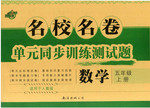题目内容
His cousin is studying abroad, and it will be two years before they ________ together again.
- A.will be
- B.are
- C.were
- D.would be

 名师导航单元期末冲刺100分系列答案
名师导航单元期末冲刺100分系列答案 名校名卷单元同步训练测试题系列答案
名校名卷单元同步训练测试题系列答案There are records of fingerprints taken many centuries ago. The ancient Babylonians pressed the tips of their fingerprints into clay to record business trade. The Chinese used ink-on-paper finger impressions for business. However, fingerprinting wasn't used as a method for identifying criminals until the 19th century.
In 1858, Sir William Herschel was working as an official of the Hooghly district in Jungipoor, India.In order to reduce fraud(诈骗), he had people living in the district record their fingerprints when signing business documents. A few years later, Scottish doctor Henry Faulds was working in Japan when he discovered fingerprints left by artists on ancient pieces of clay.This finding inspired him to begin investigating fingerprints.In 1880, Faulds wrote to his cousin, the famous naturalist Charles Darwin, and asked for help with developing a fingerprint classification system.Darwin refused, but sent the letter to his cousin, Sir Francis Gallon, who was an eugenicist (优生学家). Gallon began collecting fingerprints and eventually gathered some 8, 000 different samples to analyze. In 1892, he published a book called "Fingerprints", in which he outlined a fingerprint classification system—the first existence.
Around the same time, Juan Vucetich, a police officer in Buenos Aires, Argentina, was developing his own version of a fingerprinting system.In 1892, Vucetich was called in to assist with the investigation of the two boys murdered in Necoche, a village near Buenos Aires. Their mother, Francisca Rojas, accused a neighbour named Velasquez. But when Vucetich compared the fingerprints found at the murder scene to those of both Velasquez and Rojas, they matched Rojas' exactly.She admitted her crime. This was the first time fingerprints had been used in a criminal investigation.Vucetich called his system comparative dactyloscopy(指纹鉴定法). It's still used in many Spanish-speaking countries.
Sir Edward Henry, in charge of the Metropolitan Police of London, soon became interested in using fingerprints to catch criminals. In 1896, he added to Gallon's technique, creating his own classification system, the Henry Classification System. It is the primary method of fingerprint classification throughout most of the world.
【小题1】Herschel had people record their fingerprints so as to_____.
| A.develop a fingerprinting system | B.prevent illegal business |
| C.put them on pieces of clay | D.collect and study fingerprints |
| A.Herschel. | B.Faulds. | C.Gallon. | D.Darwin. |
| A.the fingerprints | B.the two boys | C.the crimes | D.the police officers |
| A.Faulds collected many fingerprints while in Japan |
| B.Henry's classification system is based on Gallon's |
| C.Darwin showed great interest in studying fingerprints |
| D.Vucetich's fingerprinting system is still used all over the world |
| A.Different uses of fingerprints. |
| B.The history of fingerprinting. |
| C.Countries that first used fingerprints. |
| D.The way to collect and analyze fingerprints. |
Theses are his cousin’s first two __________paintings, which he likes very much.
|
A.little red French interesting oil |
B.interesting little red French oil |
|
C.interesting French little red oil |
D.little red interesting oil French |